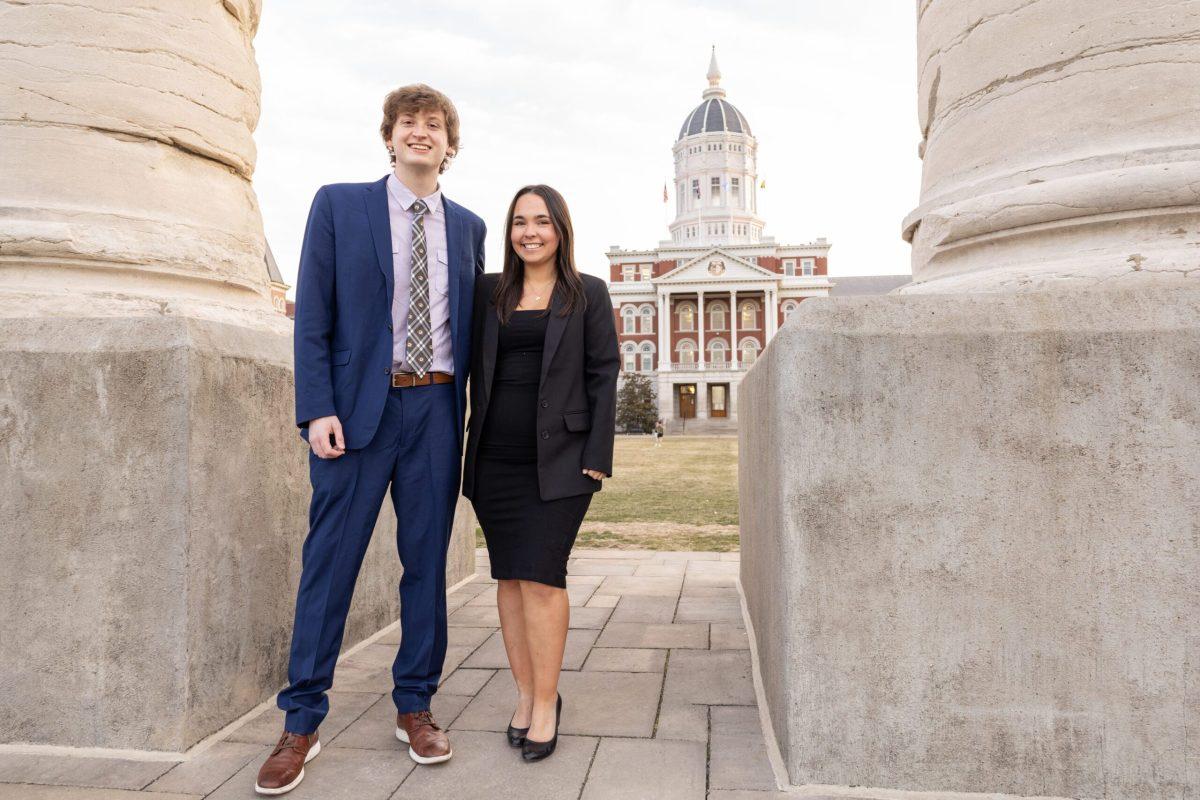By MJ Montgomery and Olivia Rodriguez
While Center for Disease Control studies show the practice is more effective at blocking respiratory droplet particles, MU said it will not require “double-masking” on campus.
Double-masking refers to wearing a cloth mask over a surgical mask. The CDC recently updated its mask recommendations after studies indicated the practice resulted in blocking 85.4% of cough particles from the mouth.
MU has made additions to the section titled “face coverings” section on the Show Me Renewal website to reflect this recommendation. Included on the page is a subsection titled, “Improve how your face covering protects you.” The section contains a link to the CDC’s website which details ways to improve the fit and how well one’s mask protects them, including a list of do’s and don’ts.
“At this time, MU is not requiring the use of double masks,” university spokesperson Stephanie Fleming said. “When it comes to choosing an appropriate face covering, the most important factors are choosing something that fits snugly over your nose, mouth and areas of your lower face, and has at least two layers of fabric.”
Dr. Taylor Nelson, an assistant professor of Clinical Medicine in the Infectious Diseases Division of University Hospital said while double-masking doesn’t necessarily need to be mandated, it’s more important that students have a good fit for their mask.
“The biggest risks for college students is proximity to others and poor ventilation in older buildings,” Nelson said.
For improving protection, Nelson recommends using methods to better the fit of a mask, like knotting the ties and wearing a mask brace, a type of strap that holds the mask tighter to the face.
In the intervening weeks since the CDC’s new recommendation, the MU Health Care has also not adopted a double-masking rule. Nelson said MU Health Care personnel opt for PAPR, a type of ventilated hood, or an N95 mask.
Though MU is not requiring students to wear two masks, the information the CDC collected on the effectiveness of the technique is easily accessible to students.
“[The CDC guidelines were] shared on the Show Me Renewal site, which is updated regularly with the latest guidelines and information related to combating the spread of COVID-19 on campus,” Fleming said.
According to the Show Me Renewal website which displays active student cases and overall reported student cases, MU’s current active cases are 6 students and 1 MU staff member. Comparatively, the spike in MU cases occurred September 5 at 683 active student cases.
“Thankfully, we’re seeing a decline in [case] numbers,” Nelson said. “We should continue these measures until we reach the herd immunity standpoint. I encourage anyone who can to get vaccinated.”
Vaccine eligibility can be determined through the Missouri Department of Health and Senior Services’ vaccine distribution guide, available online. Those eligible to get vaccinated in Columbia can set up an appointment through MU Health Care.
_Edited by Joy Mazur | [email protected]_













